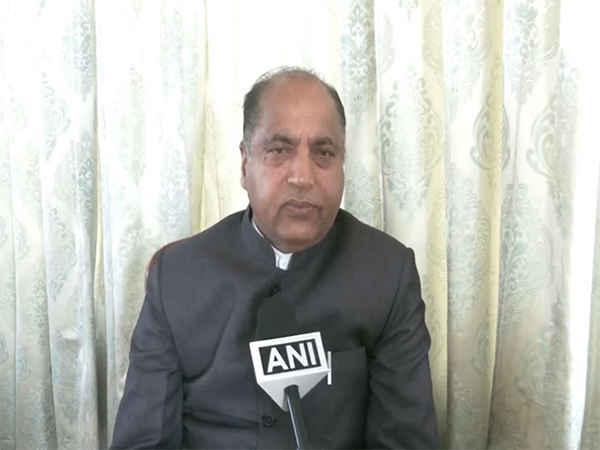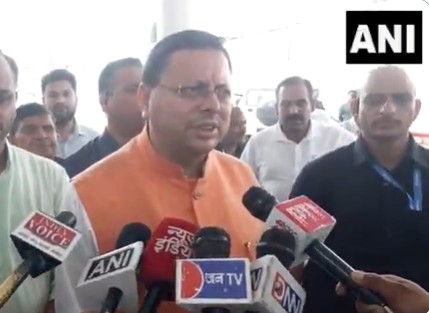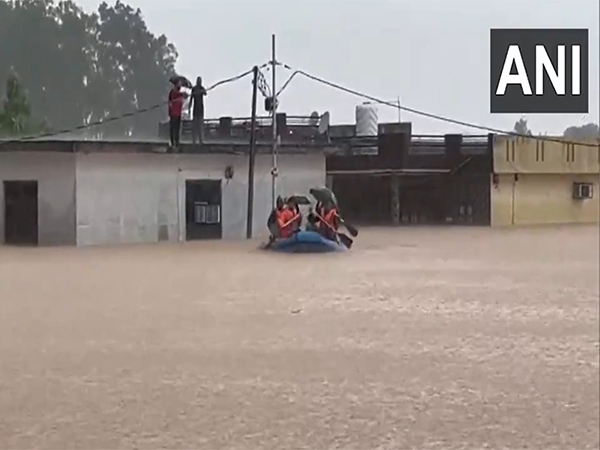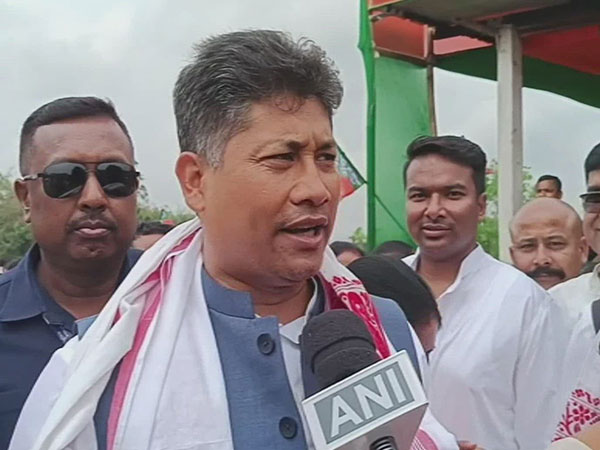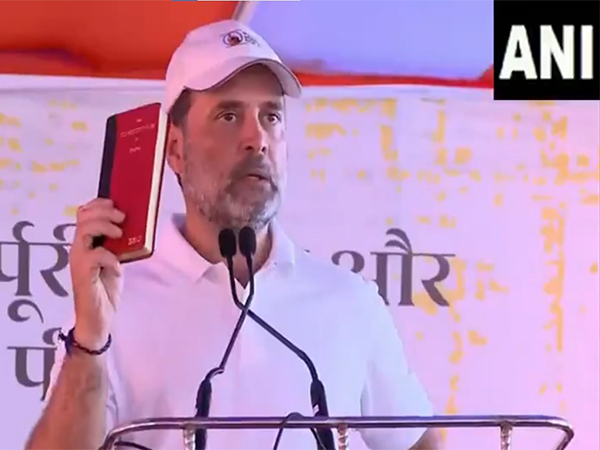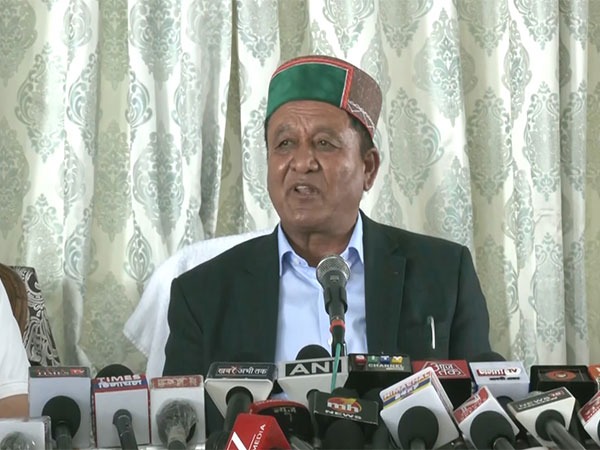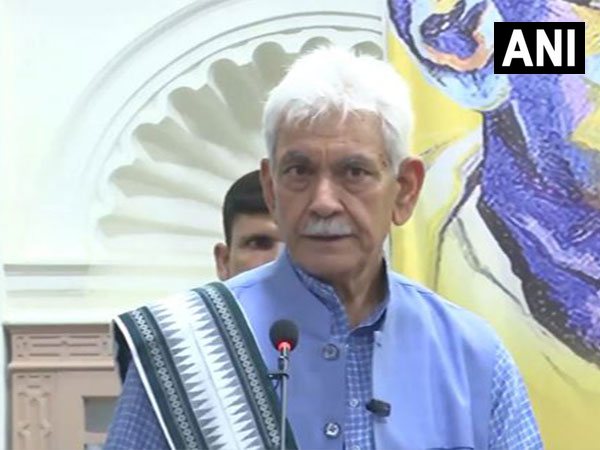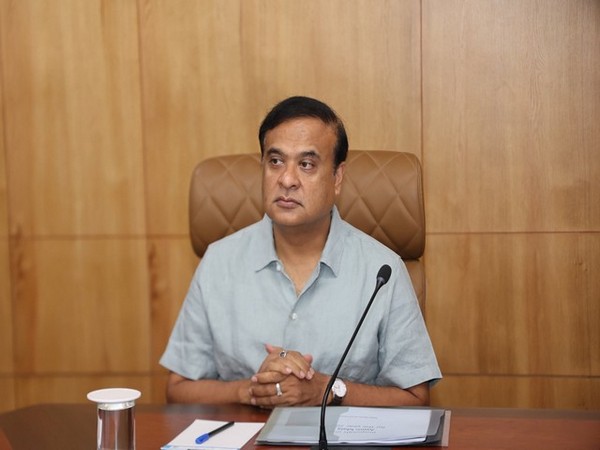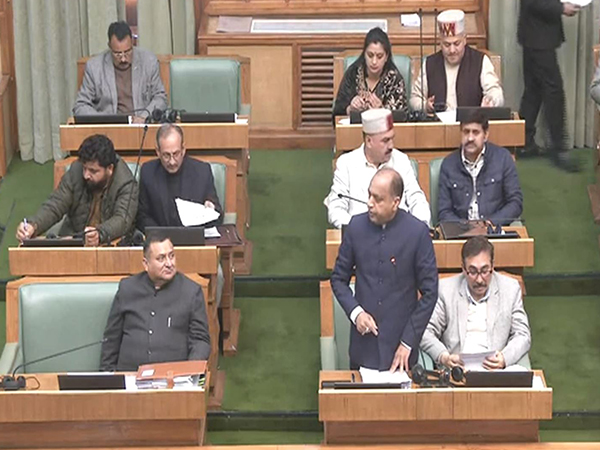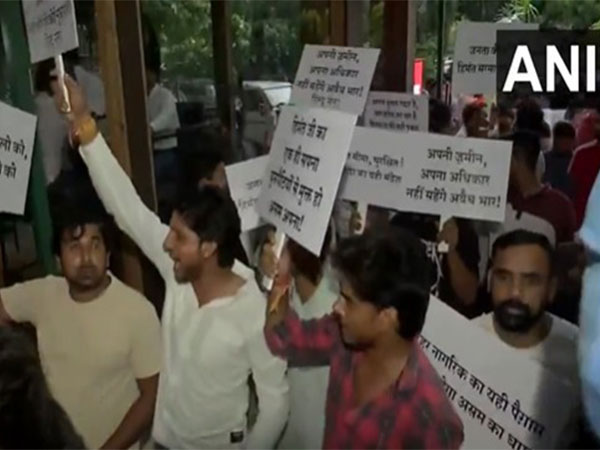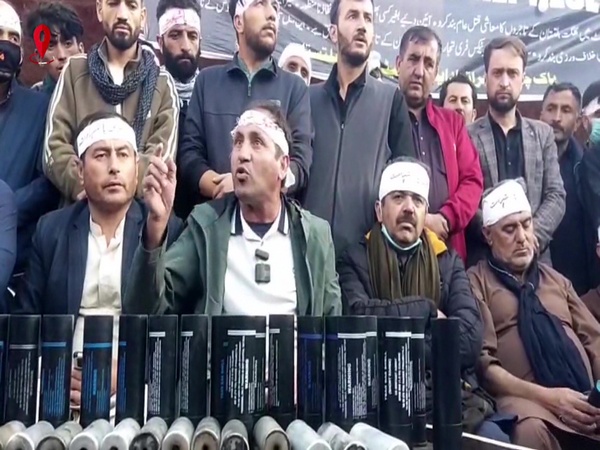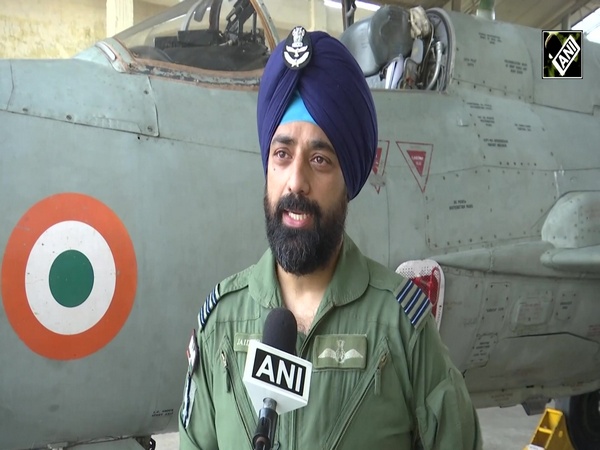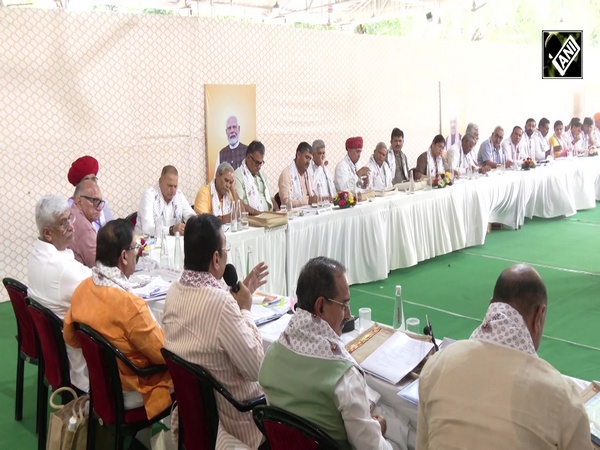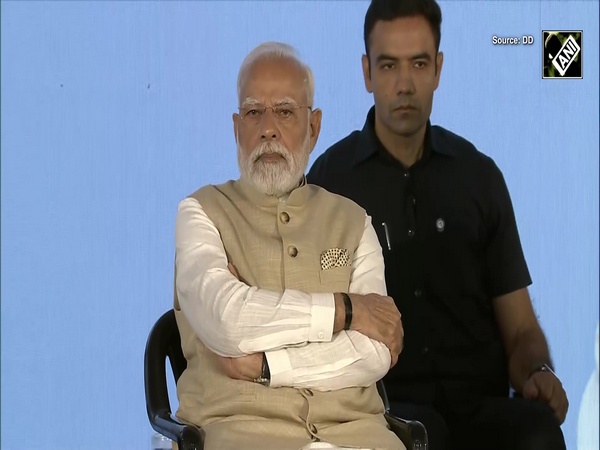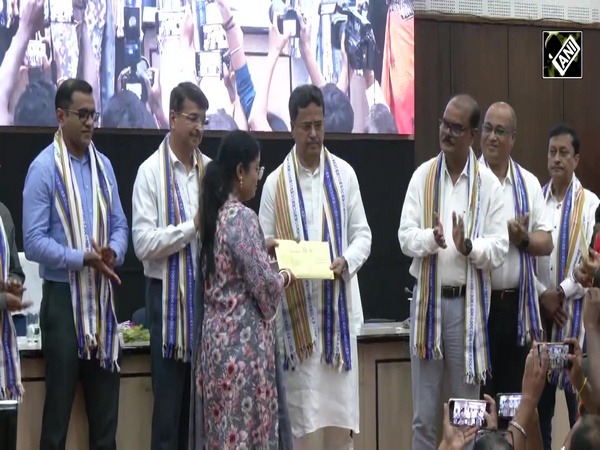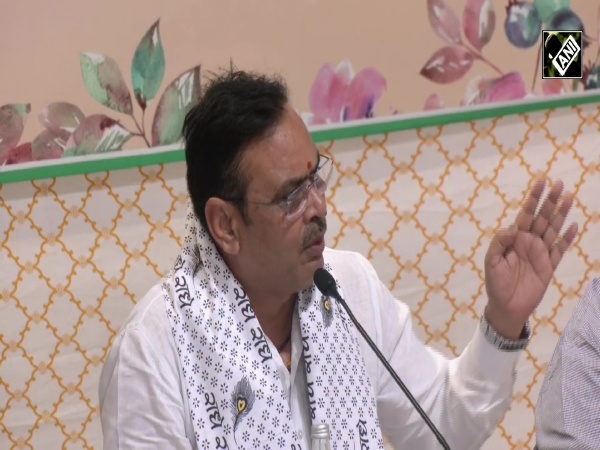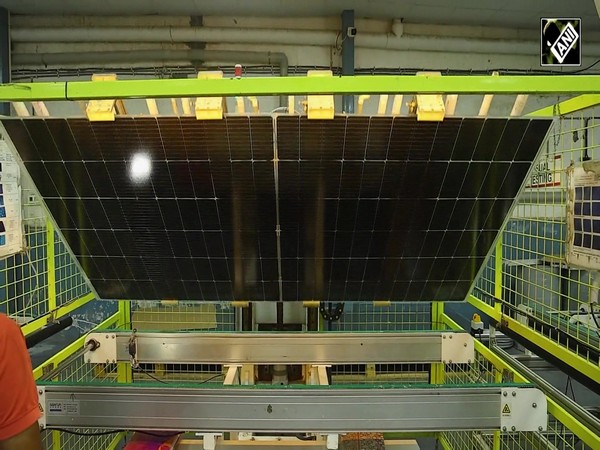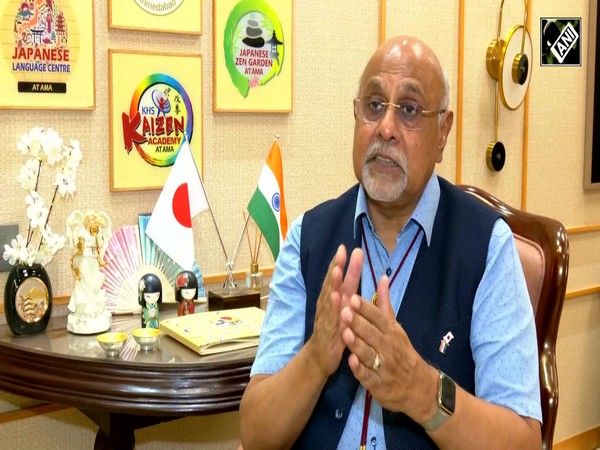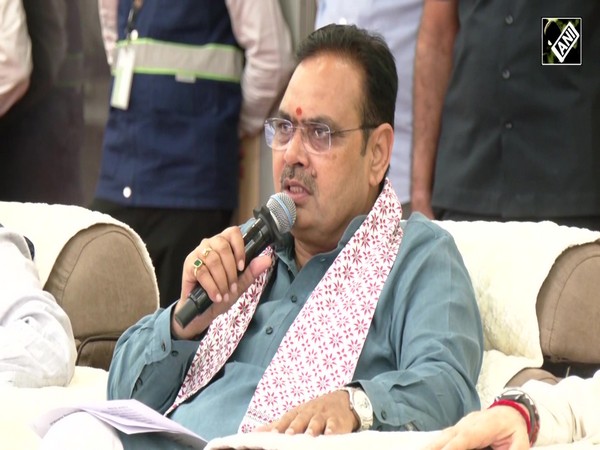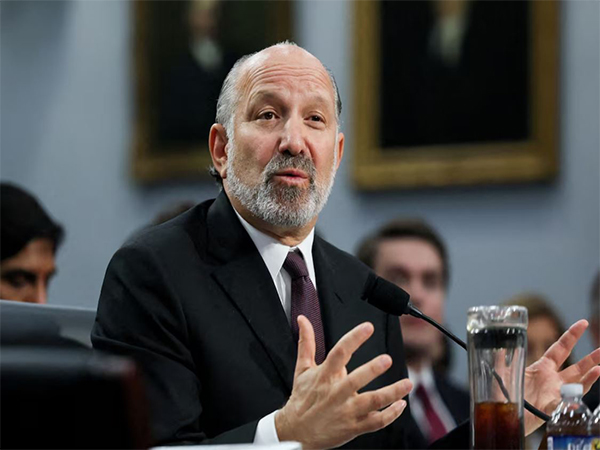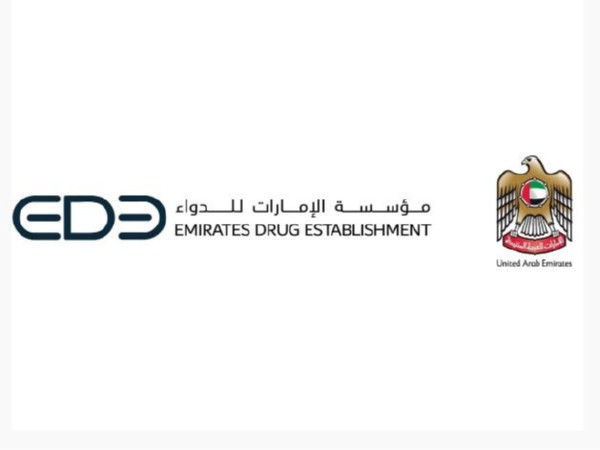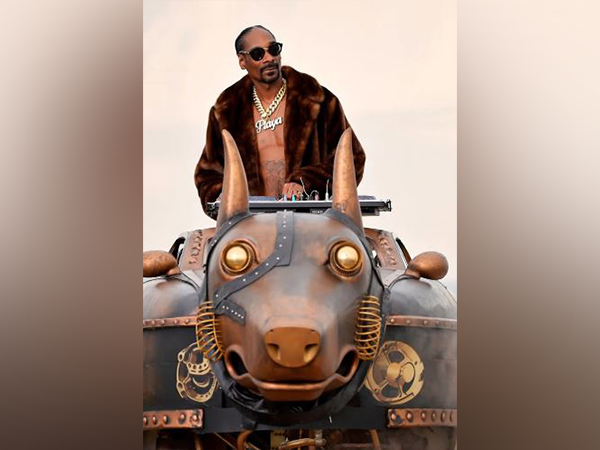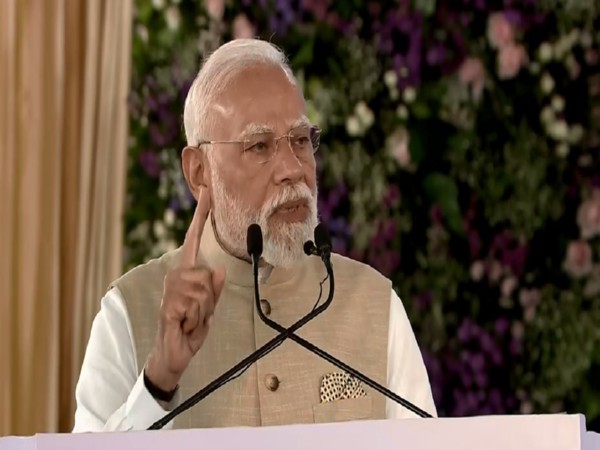
PM Modi flags off first BEV 'e-Vitara' from Suzuki's Hansalpur plant, inaugurates lithium-ion battery cell and electrode production
Aug 26, 2025
Gandhinagar(Gujarat) [India], August 26 : Prime Minister Narendra Modi, while inaugurating Maruti-Suzuki's first battery electric vehicle and lithium-ion battery production at Hansalpur in Ahmedabad district on Tuesday, described the friendship between India and Japan as "Made for Each Other," a release from the Gujarat Chief Minister's Office (CMO) said.
He said that from now on, when electric vehicles travel across more than 100 countries with "Made in India" written on them, it will be a matter of pride for all of us.
While encouraging "Vocal for Local" and defining "Swadeshi," he said that no matter which country invests, if the hard work belongs to any Indian citizen and the product is largely made on Indian soil, then for us, it is Swadeshi.
At the Suzuki Motor Plant, PM flagged off the battery electric vehicle (BEV) "e VITARA," reflecting the commitment to "Make in India" and "Atmanirbhar Bharat" while highlighting India's emergence as a global hub for green mobility.
At the TDSG lithium-ion battery plant, he also inaugurated the local production facility of hybrid battery electrodes. This plant will accelerate clean energy and ensure that 80 per cent of the total batteries produced will be manufactured in India.
On this occasion, he said that in the festive spirit of Ganesh Utsav, a new chapter is being added today to India's Make in India journey. This is a major leap toward our goal of "Make in India, Make for the World." He added that from today, electric vehicles made in India will be exported to around 100 countries, and the production of hybrid battery electrodes beginning today will give a new dimension to India-Japan friendship.
He said that nearly thirteen years ago, the foundation of Suzuki's Hansalpur plant was laid in Gujarat, making this the plant's thirteenth year, which he described as the beginning of its "teenage." This is the phase of spreading wings and taking flight toward dreams. He expressed confidence that in the coming years, this Maruti plant will spread its wings with renewed enthusiasm and move forward.
He added that in 2012, during his tenure as Chief Minister, he had sown the seeds of development by providing land to Maruti Suzuki with the vision of Atmanirbhar Bharat and Make in India. The Maruti-Suzuki company is carrying this vision and faith forward.
The Prime Minister also recalled the contribution of the late Osamu Suzuki of the Suzuki Company in strengthening India-Japan friendship and said that today's achievement is the outcome of his vision.
PM, referring to the exceptional capabilities and skills of Indian citizens, said that India has the advantage of both democracy and demography. Every company coming to India for production benefits from this skilled workforce. In this regard, he added, it is a "win-win situation" for every partner country investing and producing here.
He mentioned that Maruti-Suzuki exports cars made in India to Japan as well as other countries. This reflects the mutual trust between Japan and India. Maruti-Suzuki has today become the brand ambassador of Make in India, and from today, EV exports will also be taken to the same level.
Today, companies like Maruti-Suzuki are among the largest car exporters from India. Not only that, from today, electric vehicles of Maruti-Suzuki running across countries of the world will have "Made in India" inscribed on them. This is a matter of pride for the entire nation.
The Prime Minister said that batteries are crucial for EVs and were once largely imported. To establish India as an EV manufacturing hub, domestic production became essential. In 2017, Toshiba, Denso, and Suzuki set up the TDSG battery plant in Gujarat, where batteries and electrodes are now manufactured locally, strengthening India's self-reliance.
Referring to his visit to Singapore, the Prime Minister said he proposed converting old vehicles and ambulances into hybrid EVs. Maruti-Suzuki met this challenge by developing a working hybrid ambulance prototype within six months. This innovation aligns seamlessly with approximately Rs 11 thousand crore PM E-DRIVE scheme, which includes provisions for e-ambulances.
Prime Minister emphasised that clean energy and mobility represent the future, with hybrid EVs playing a key role in reducing pollution and positioning India as a trusted global hub. He highlighted that policies introduced over the past decade have driven significant industrial growth.
Since 2014, the 'Make in India' initiative has fostered a supportive ecosystem for domestic and international manufacturers. Complementary measures, including industrial corridors, logistics parks, and production-linked incentives, have been introduced, alongside reforms aimed at removing legacy hurdles and improving ease of doing business.
Highlighting the benefits of these policies, the Prime Minister said that electronics production has increased by nearly 500 per cent, while mobile phone manufacturing has surged by about 2,700% compared to 2014. Similarly, defence production has also grown by over 200%.
Prime Minister said that such policies by the central government motivate every state, creating healthy competition that benefits the entire nation. States have been advised to adopt proactive, pro-development policies, enable single-window clearances, and make laws more investor-friendly. These measures build investor confidence in states with such policies.
At a time when the world is looking towards India, he urged all states to compete in reforms, good governance, and development to contribute to building a Viksit Bharat@ 2047.
He noted that although several states have performed well across various sectors, there is still room for greater achievement. Emphasising the need to focus on future-driven industries, he highlighted India's significant strides in the semiconductor sector. Currently, six semiconductor plants are being set up nationwide, with plans to further accelerate this progress.
Speaking about the need for rare earth elements, the Prime Minister said the central government has launched the National Critical Minerals Mission to address challenges in this sector. Under this initiative, approximately 1,200 exploration campaigns will be conducted nationwide to identify and locate these elements.
Speaking about his upcoming visit to Japan, the Prime Minister said that the friendship between India and Japan is not just diplomatic but also cultural, with both nations supporting each other's progress. What began with Suzuki has now extended to the Bullet Train project.
The initiative to realise India-Japan industrial potential started in Gujarat. Since the launch of the Vibrant Gujarat Global Summit 20 years ago, Japan has been a key partner of Gujarat, which reflects their strong partnership.
Emphasising the need to advance in all major sectors in the coming years, the Prime Minister expressed confidence that today's efforts will not only strengthen the foundation for a Viksit Bharat@2047 but also make the India-Japan partnership long-lasting.
Speaking on this occasion, Chief Minister Bhupendra Patel stated that Prime Minister Narendra Modi views industries not merely as a source of economic investment and employment, but as a vital driver of socio-economic development.
Referring to Suzuki Motor's announcement of hybrid battery electrode manufacturing at Hansalpur and the export of battery electric vehicles to over 100 countries, the Chief Minister described it as a decisive step towards Viksit Bharat. He said that Gujarat has always embraced the path of growth and progress, and this move by Suzuki Motors marks a new golden chapter in the state's industrial journey.
He further added that the Special Investment Regions, such as Sanand and Mandal-Becharaji, developed under the visionary leadership of the Prime Minister, exemplify the vision for a Viksit Bharat.
Chief Minister said that a comprehensive automobile ecosystem has taken shape in this region and expressed confidence that, under the Prime Minister's guidance, these clusters will play a pivotal role in establishing Gujarat as a global automotive hub.
He further said that the relationship between Gujarat and Japan is built on trust, trade, and shared values. The choice of global companies like Suzuki, Toshiba, and DENSO to invest in Gujarat stands as the strongest testament to this trust.
Chief Minister said that Gujarat, under the Prime Minister's visionary leadership, has demonstrated how the right policies, state-of-the-art infrastructure, ease of doing business, and proactive governance can transform a state into a global industrial hub.
Speaking about the Vibrant Summit initiated by the Prime Minister, the Chief Minister said it has positioned Gujarat firmly on the global industrial map and opened new avenues for industries and investments in the state. He also expressed confidence that, under the Prime Minister's guidance, Gujarat's automotive sector will set new directions for the world in the coming years.
Beginning his address in Gujarati, Japan's Ambassador, ONO Keiichi, said that India-Japan industrial relations have long fostered peace and prosperity. He expressed pride that electric cars made in Gujarat will now be exported to over 100 countries and noted that the projects launched today will significantly advance sustainable and clean mobility.
He noted that many Japanese companies are already operating successfully in Gujarat and across India. He further added that Prime Minister Shri Narendra Modi's upcoming visit to Japan will further strengthen industrial ties between the two nations.
T Suzuki, Representative Director and President of Suzuki Motor Corporation, in his welcome address, welcomed everyone to the inauguration of these historic projects at the Suzuki plant.
